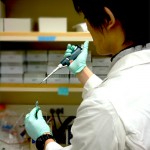 Flowering plants are smart. They know how to grab our attention and the attention of passing insects. Flowers actually intentionally, flaunt sex. Makes perfect sense really, since it’s the flowers job to manage the reproduction of the plant. Plants produce beautiful flower petals of varying colors and shape to advertise the sexual organs ever so masterly hidden inside. Flowers release powerful aphrodisiac scents, an instinctive incentive for insects to come in and play. Nectar and pollen are the insects’ rewards and the plant benefits from the insects who carry their pollen to other plants which ensures rapid fertilization and reproduction. Flowers are smarter than you might think, but there’s more to flowers than just sex.
Flowering plants are smart. They know how to grab our attention and the attention of passing insects. Flowers actually intentionally, flaunt sex. Makes perfect sense really, since it’s the flowers job to manage the reproduction of the plant. Plants produce beautiful flower petals of varying colors and shape to advertise the sexual organs ever so masterly hidden inside. Flowers release powerful aphrodisiac scents, an instinctive incentive for insects to come in and play. Nectar and pollen are the insects’ rewards and the plant benefits from the insects who carry their pollen to other plants which ensures rapid fertilization and reproduction. Flowers are smarter than you might think, but there’s more to flowers than just sex.
As spring weather emerges and flowers begin to bloom, you might want to consider that many flowers are so much more than just look pretty. We have depended on flowers for our food supply, such as rice, wheat, corn and for clothing materials such as cotton and for medicine, continuously for thousands of years. Long before western pharmaceutical drugs, flowers were used as herbal remedies and recorded use goes back to 500 AD. Chinese medicine, for example, has used flowers in herbal remedies to heal a huge variety of afflictions. Here are a few examples:
 Lonicerae Flower – (Jin Yin Hua) has been used in Asian cultures for colds, flu, and sore throats. Recently, it was one of the four herbs in a formula to combat the swine flu and has proven its antibiotic properties successfully through years of research.
Lonicerae Flower – (Jin Yin Hua) has been used in Asian cultures for colds, flu, and sore throats. Recently, it was one of the four herbs in a formula to combat the swine flu and has proven its antibiotic properties successfully through years of research.
 Viola Flower – (Zi Hua Di Ding) is known as the purple flower earth herb. This herb/flower has both anti-inflammatory and antipyretic effects, meaning it can treat fevers and bacterial infections. It has been used for centuries as an herbal remedy to treat snake bites because it can reduce both swelling and toxicity.
Viola Flower – (Zi Hua Di Ding) is known as the purple flower earth herb. This herb/flower has both anti-inflammatory and antipyretic effects, meaning it can treat fevers and bacterial infections. It has been used for centuries as an herbal remedy to treat snake bites because it can reduce both swelling and toxicity.
 Pagoda Flower – or Sophorae flower (Huai Hua) is used to stop various bleeding disorders. Chinese medicine often uses this herb/flower in the treatment of hemorrhoids and excessive menstrual bleeding.
Pagoda Flower – or Sophorae flower (Huai Hua) is used to stop various bleeding disorders. Chinese medicine often uses this herb/flower in the treatment of hemorrhoids and excessive menstrual bleeding.
 Chrysanthemum Flower– (Ju Hua) This common Chinese medicine herb has over 30 different species and is a wonderful natural eye treatment for dry, irritated eyes. It’s also commonly used for high blood pressure, headaches and other ailments in Traditional Chinese Medicine.
Chrysanthemum Flower– (Ju Hua) This common Chinese medicine herb has over 30 different species and is a wonderful natural eye treatment for dry, irritated eyes. It’s also commonly used for high blood pressure, headaches and other ailments in Traditional Chinese Medicine.
 Safflower also is known as Carthamus – (Hong Hua) is a red flower used to treat menstrual disorders such as cramps and amenorrhea. It’s known to invigorate circulation and help dissolve clots. Safflower has been extensively studied and found beneficial for use in patients with heart disease and joint pain. This flower also has a high success rate in treating flat warts. (Now that’s a fun herbal remedy fact!)
Safflower also is known as Carthamus – (Hong Hua) is a red flower used to treat menstrual disorders such as cramps and amenorrhea. It’s known to invigorate circulation and help dissolve clots. Safflower has been extensively studied and found beneficial for use in patients with heart disease and joint pain. This flower also has a high success rate in treating flat warts. (Now that’s a fun herbal remedy fact!)
 Magnolia Flower – (xin yin hua) How about a flower to treat nasal congestion? This flower is one of the most effective herbal remedies for stuffy noses and chronic sinusitis.
Magnolia Flower – (xin yin hua) How about a flower to treat nasal congestion? This flower is one of the most effective herbal remedies for stuffy noses and chronic sinusitis.
 Lotus Flower – (Lian Zi Xin) I would be remiss not to mention one of the most famous flowers associated with Chinese medicine, the Lotus flower. Eight parts of the lotus plant are used for their botanical medicine qualities. The flower is known to treat bleeding disorders (i.e. bloody noses) and often used for irritability and fevers. The stamen of the lotus flower also has healing qualities. One use in Traditional Chinese Medicine is to reduce excessive dreaming.
Lotus Flower – (Lian Zi Xin) I would be remiss not to mention one of the most famous flowers associated with Chinese medicine, the Lotus flower. Eight parts of the lotus plant are used for their botanical medicine qualities. The flower is known to treat bleeding disorders (i.e. bloody noses) and often used for irritability and fevers. The stamen of the lotus flower also has healing qualities. One use in Traditional Chinese Medicine is to reduce excessive dreaming.
Flowers truly have wonderful healing properties and have changed our world more than we imagine. Chinese medicine understands flowers are useful beyond just their sexual appeal of beautiful packaging. (Many more are used in Traditional Chinese medicine than I could possibly have space to mention here.)
I thank the flowering plants for their beauty, but even though flowers are beautiful to look at, I never overlook the fact they also provide us with an abundance of natural herbal remedies.
http://www.ncbi.nlm.nih.gov/pubmed/26087234

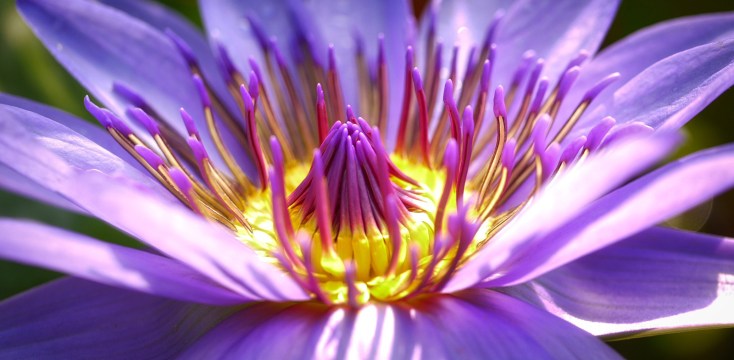
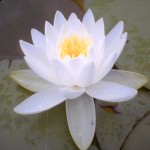
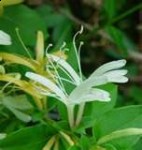
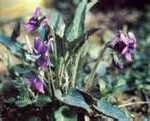

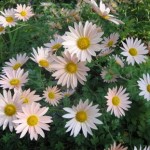

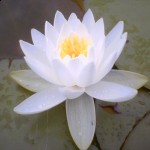
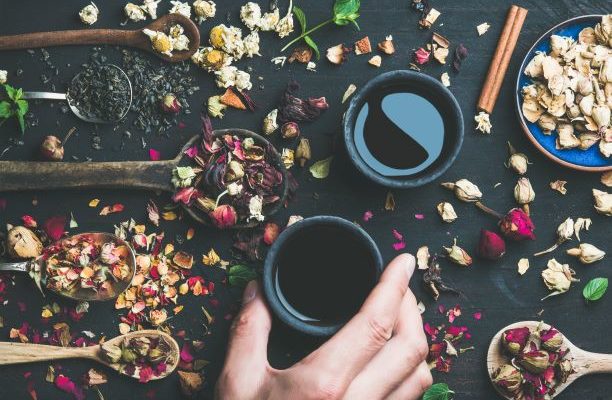
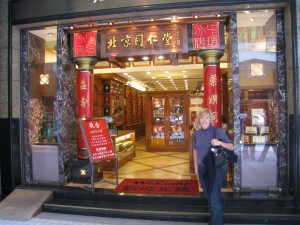
 I having been surrounded (quite literally) for the past three days by so called “healthy products”, everything from fortified lolly pops, safer nail polish to every type of infused water possible. I had three days of endless conversations with wellness experts from around the world, Naturopaths, Dieticians, Chiropractors, Acupuncturists, Herbalists, Homeopaths and Bio-Chemists to name a few. Every health professional I spoke to had the same resounding theme, the key to better health is not in any one of these hot new health products that you’ll find at the Natural Products Expo and later on a
I having been surrounded (quite literally) for the past three days by so called “healthy products”, everything from fortified lolly pops, safer nail polish to every type of infused water possible. I had three days of endless conversations with wellness experts from around the world, Naturopaths, Dieticians, Chiropractors, Acupuncturists, Herbalists, Homeopaths and Bio-Chemists to name a few. Every health professional I spoke to had the same resounding theme, the key to better health is not in any one of these hot new health products that you’ll find at the Natural Products Expo and later on a 
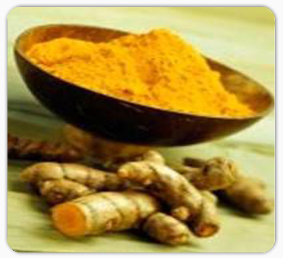
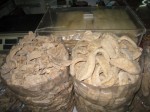
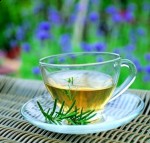

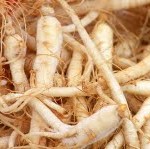 Ever since Dr. Oz’s interview in Esquire magazine (Dec. 09) I’ve been fielding a phethera of questions on ginseng. Thanks Dr. Oz, I’m always happy to talk about the Chinese herbs I love. It’s an added bonus that the best American Ginseng is actually grown in Wisconsin, my old stomping grounds. I also love to buy American whenever possible.
Ever since Dr. Oz’s interview in Esquire magazine (Dec. 09) I’ve been fielding a phethera of questions on ginseng. Thanks Dr. Oz, I’m always happy to talk about the Chinese herbs I love. It’s an added bonus that the best American Ginseng is actually grown in Wisconsin, my old stomping grounds. I also love to buy American whenever possible.